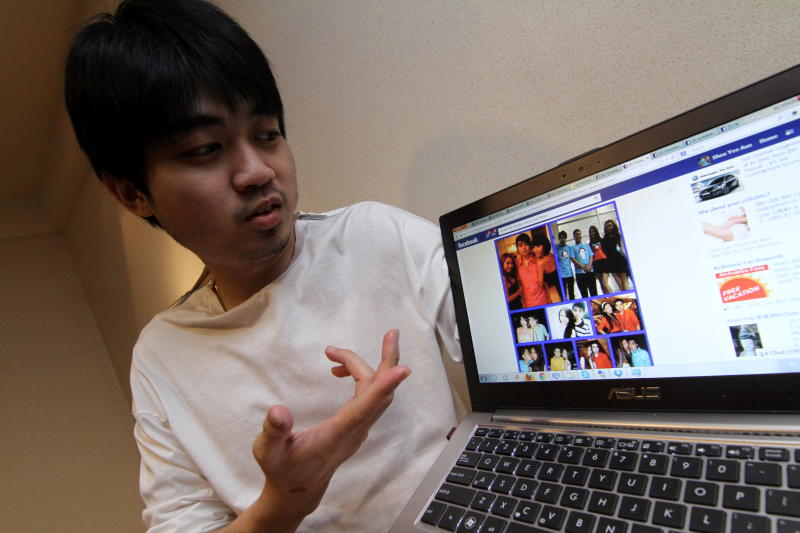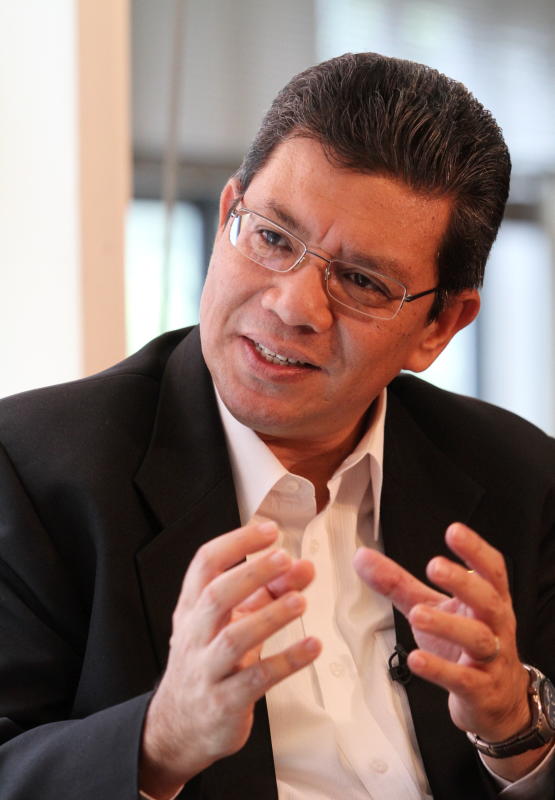By IAN YEE and CHRISTINA CHIN
alltherage@thestar.com.my
THERE are quite a few different terms for Internet bullies – cyberbullies, keyboard warriors, flamers, trolls, etc. Now, thanks to the upcoming general election, you can add “cybertroopers” to that list.
Cybertroopers are basically election campaign volunteers. The only difference is they do their work online.
Over the past few months, however, they have become associated more with cyber bullying than cyber campaigning.
A few weeks ago, political activist Shen Yee Aun, 25, lodged reports with both the Malaysian Communications and Multimedia Commission as well as the police over persistent death and rape threats towards a female friend – a 23-year-old Monash University student who had appeared in a pro-Barisan YouTube video, and is a member of a political NGO founded by Shen.
As a DAP member-turned-outspoken Barisan Nasional supporter, Shen has always received a fair bit of criticism on social media. But with the war of the cybertroopers at its height, he said things are now getting more personal.
“They are now targeting my friends, who are not even into politics!” said Shen, who has had personal Facebook photos of him and his friends copied and turned into insulting posters. “It’s really sad. We are no longer talking about facts, policies or ideas. We are talking so much about emotions, hatred and anger.”

Political activist Shen Yee Aun showing a derogatory Facebook banner with photos copied from his personal Facebook account. Shen claims they are the work of political ‘cybertroopers’.
Shen is convinced that the “thousands and thousands” of messages directed towards him are the work of cybertroopers hired by DAP, a claim which DAP politician Jeff Ooi categorically denies. The party does not have the resources to pay for such services, he said.
“We do not discount the fact that there are some who speak on our behalf without our consent. But if we clamp down on them, then there’s no freedom of speech,” said Ooi, the first Malaysian blogger to be elected into parliament. “However, if nothing is done, the entire platform of public expression through online media will degrade.
“You have people being threatened with rape or having their homes burnt down – that is something I do not condone.”
What makes it worse is that there’s very little the authorities can do about it.
“I still haven’t heard from the police or MCMC yet, and I don’t blame them,” said Shen. “It is very hard to convict cyberbullies, especially when a lot of them use fake accounts.”
What these cyberbullies do, however, is certainly against the law. According to section 233 of the Communications and Multimedia Act 1998, any obscene, indecent, false, menacing or offensive comment or communication – with the intention to annoy, abuse, threaten or harass – is an offence.
Any individual convicted could be liable to a fine of not more than RM50,000, imprisonment for a term not exceeding one year, or both. Naturally,
Both Barisan and Pakatan Rakyat are known to have cyber activists operating on their behalf, but neither side is taking responsibility for the on-going bullying.
However, Barisan politician Datuk Saifuddin Abdullah, who has an active presence on social media, believes the leadership from both Barisan and Pakatan have to take responsibility for the current situation and “come out strongly against political violence, gutter politics and character assassination.”
“Our politics are too adversarial, to the point that we have become enemies rather than worthy opponents on the political stage. This culture must go,” he said.
Modus operandi
Clearly, social media has become a key battlefield of the 13th general elections.
Saifuddin said that young professionals now form around 30% of the electorate that are currently on the fence.

Barisan politician Datuk Saifuddin Abdullah says that the social media is a powerful influencer in regards to the GE13.
“(In past elections), these middle ground voters were not in contact with each other; but now they are, because they are sharing (on social media).
“So even among the young voters, there already exists what I call ‘accumulated thought’. It’s no longer that 30% of the electorate going out to vote individually. They have been sharing information and views and ideas before going to the ballot box, so social media is a very powerful medium,” he said.
According to Shen (who claims to have inside knowledge on how DAP cybertroopers operate), most cybertroopers are actually paid by the parties they represent. Ooi too, said he has friends who are paid between RM6,000 and RM8,000 to take sides when posting online.
These individuals then start creating fake social media accounts, building followings on each of them by adding random people.
“Let’s say they have 20 people, and each of them create 10 fake accounts. That way, you already have 200 different accounts sharing something, and from there you can make something go viral,” said Shen. “(The strategies) are more complicated than that, but those are the basics.”
Josh Lim, founder of social media and blog marketing company Adverlets, said these strategies are nothing new.
“People do create fake accounts with pictures of pretty girls, especially to invite others to events,” said Lim. “Also, when I first started Adverlets, I kept wondering why there were these people slamming me on my blog. Turns out they were from a rival company.
“These days you have to be more critical, more tech-savvy. You can’t just take a comment for what it is. You have to see who was behind the comment as well,” he said.
Social media marketer Teoh Mei Ying, however, believes these strategies will fail to have an effect on most Malaysians.
“Let’s face it, we have all made our decisions on which party to vote for. Even if we haven’t, these memes, videos and hateful comments are not going to sway us,” she said.

Social media expert David Lian expects the trend of discussing politics on social media to continue to grow in the future.
Social media expert David Lian, concurred, adding: “Most informed Internet users just ignore cybertroopers, and many have indicated a distaste for the practice. It’s a shame that instead of discussing issues frankly and openly, some quarters would resort to cybertrooping to fake perception – most of which is ignored and probably counterproductive anyway.”
Lian said there’s a pretty easy way to determine if a particular post is by a fake cybertrooper account or a genuine observer.
“Cybertroopers have no real intention to engage. They merely post positive or negative comments as ordered, so you can often spot a fake cybertrooping account by looking at the conversations they have participated in,” said Lian.
Nevertheless, Lian has been encouraged by the growing number of Malaysians using social media to discuss politics.
“It’s great to see the public actually discussing issues like policy, education and the economy instead of merely waving the party banner. This community is still small, but I do expect this trend to continue growing,” he said.
Shen, however, believes there are many more young Malaysians who are ready to discuss political issues, but they are simply too afraid because of the current political climate on the Internet, which Saifuddin calls a “culture of fear”.
“How are you going to speak out? You are using your real account, and you are up against people who don’t have a life. They are paid just to whack you 24/7,” said Shen.


Tell us what you think!